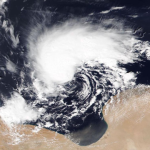By Preeti Jha
In its 2025 Clean Air Investment Update, to be released at COP30 on Friday, the Energy Policy Institute at the University of Chicago (EPIC) identified 83 countries where an annual investment of only $50,000-$100,000 could improve air quality. Three African countries — Angola, Zambia, and Burundi — topped the list: None have government-standard air pollution monitoring capacity, but the report found there is local interest in filling this data gap with the growing availability of lower-cost monitoring solutions.
Air pollution poses “the world’s largest single environmental health risk,” contributing to seven million premature deaths each year, according to the World Health Organization. But access to data on air quality — which can help communities push governments to clean up the air — is a major global challenge: Some of the most polluted countries in Africa have far less data than some of the cleanest in Europe.
The US State Department shut down its overseas air monitoring program this year, leaving 36 countries without access to their only high-quality source of information about the air their populations breathe.
A growing body of research has shown the harmful impact of air pollution on human health. The most harmful pollutant is PM2.5 — airborne particles invisible to the naked eye that can enter the lungs and bloodstream — which are released from sources including vehicle and industrial emissions. The particles can aggravate asthma and trigger respiratory infections in the short-term, while longer periods of exposure raises the risk of conditions such as stroke, heart disease, and cancer.
For years access to air pollution data was the preserve of governments, with the cost of more expensive, reference-grade machines often limiting the rollout of widespread monitoring. The proliferation of lower-cost sensors, whose data can be comparable to the higher-cost monitors, has fed into clean air campaigns around the world.
Expanding investment in groups working for clean air “unlocks one of the highest-return opportunities in global health today,” said Christa Hasenkopf, director of EPIC’s Clean Air Program and a co-author of the report.
The View From The Gambia
In 2023, the co-founder of the Permian Health Lung Institute, a research center, in The Gambia launched a nationwide clean air initiative after observing a high prevalence of chronic respiratory diseases in non-smoking Gambians. “As a practicing pulmonologist in the United States, I could instantly check the air quality in my patients’ neighborhoods with a simple search of their zip code,” Sunkaru Touray wrote in a recent blog. “In The Gambia, no such data existed.”
























